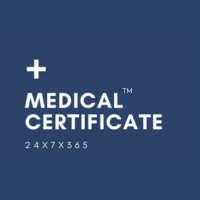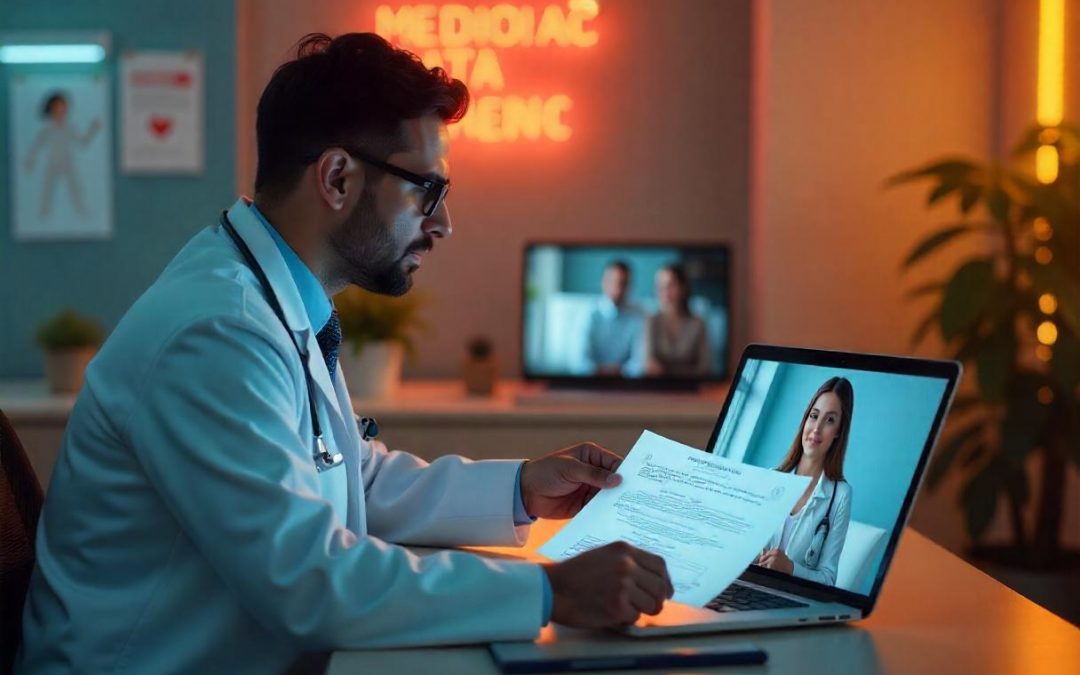Living in a time when going abroad for travel, study, or work has become so common, it becomes very relevant to know the working of a medical certificate. Medical certificates are thus required to reaffirm health claims for purposes involving employment, academic requirements, or official documentation. This guide answers some of the frequently asked questions regarding who can issue a medical certificate, its international acceptance, and how the location of the doctor doesn’t restrict its validity.
Q1: What is a medical certificate?
A medical certificate is an official document signed by a qualified health professional, such as a doctor, testifying to the fact of a patient’s disease or condition. It may serve various purposes: sick leave, travel documents, academic need, or claiming insurance benefits. It should include the diagnosis of the patient, the duration of his/her illness, and whether he/she is fit to undertake some form of tasks or responsibilities.
Q2: Who is competent to give a medical certificate?
In most countries, including India, such medical certificates can be issued only by registered medical practitioners like:
- MBBS and above Doctors
- Dentists, in cases involving oral or dental health
- Specialists: dermatologists, orthopaedists, etc.
- Surgeons
- Psychiatrists – for mental health conditions
They should be licensed under the respective country’s medical council or governing body.
Q3: Can a valid medical certificate be issued by an Indian Doctor?
Yes, a medical certificate from a licensed Indian doctor is valid, provided the doctor is registered with the MCI or the National Medical Commission. Indian doctors present standardized medical practices that are in line with global health standards; therefore, the certificates become recognized not only within the country but also internationally.
Q4: Is a medical certificate issued in India valid internationally?
A medical certificate availed from an Indian doctor might be accepted internationally; again, this may also depend on the requirement it would serve, such as traveling or going to work. However, this is something that usually needs to be checked with the country or institution to which the said certificate would be presented. Sometimes, further authentication, like apostille or notarization, might be required in order to make the document acceptable internationally.
Medical certificates may need to be translated into the local language for cases of immigration or work permits, or attested by an authority recognized by the international organizations.
Q5: Does the location of the doctor or patient affect the validity of the medical certificate?
No, the doctor’s or patient’s location does not affect the validity of a medical certificate provided the doctor themselves are registered and licensed to practice in their respective country. The patient may be physically in India or outside; the consultation the patient receives from the licensed professional will make the certificate valid.
This again is facilitated in present times through telemedicine, wherein the presence of patients necessarily within a geographical location is not required to obtain medical certificates.
Q6: Can a doctor give a certificate on the basis of an online consultation?
Yes, many countries, India included, permit doctors to issue medical certificates through telemedicine. Online consultation has become a game-changer, especially during the COVID-19 pandemic. If the doctor feels that they have adequate information to diagnose the condition correctly, they are well within their rights to issue a medical certificate online. However, specific conditions may require an in-person check-up with some institutions.
Q7: What information must a medical certificate bear?
For a medical certificate to be regarded as valid and complete, the following information is needed:
- Patient’s name and basic details like age, sex, etc.
- Diagnosis or medical condition
- Duration of the illness or condition
- Statement about the fitness of the patient and whether he or she is fit for performing day-to-day duties or requires rest
- Doctor’s name with the registration number and address
- Issuance date and doctor’s stamp and signature
Q8: How do you obtain a medical certificate?
How to get a medical certificate:
1. Make an Appointment: Schedule a consultation either in person or online with a licensed medical professional.
2. Consultation: The doctor will first seek symptoms from you and conduct an examination, if required; this might be virtual as per your condition.
3. Get Diagnosed: After the doctor has confirmed your diagnosis, he/she will decide if a medical certificate is due.
4. Certificate Collection: You will be given a signed document describing the nature of your ailment, its duration, and recommendations for rest or treatment. Sometimes, this may be given in electronic format as well.
5. Further Verification, if that is a requirement: For foreign purposes, this may require you to have your medical certificate verified or authenticated by notaries or consulates.
Q9: Is it possible to forge a medical certificate or dispute it?
Yes, forging medical certificates is against the law and punishable under it. A Medical Certificate itself is a legal document; hence, its authenticity can be challenged by the concerned authorities on grounds of suspicion for forgery or malpractice. Institutions often cross-check with the doctor’s registration details, so it’s best to ensure the document is genuine from a legitimate source.
Q10: Is a prognosis on a medical certificate universally usual?
Most countries comply with a general code of medical prognosis (ICD codes), making the analysis noted on a medical certificate internationally identified. However, the remedy or specific recommendations may also range from relying on neighbourhood clinical practices.
Q11: What are the not unusual uses of scientific certificates?
Workplace: To justify ill depart or to confirm fitness for duty.
Travel: For scientific exemptions or to verify health reputation in the course of tour.
Academics: For students requiring a day off because of health conditions.
Insurance: For claiming clinical or lifestyle insurance advantages.
Legal: For courtroom cases or criminal documentation requiring health verification.
FAQ Section:
1. Can dentists’ difficulty scientific certificate?
Yes, dentists can issue medical certificates related to oral or dental health situations.
2. Is a scientific certificate obligatory for the unwell to go away?
In many places of work, a scientific certificate is mandatory to apply for ill leave, specifically for extended absences.
3.Are telemedicine certificates as valid as in-man or woman consultations?
Yes, so long as the medical doctor follows proper processes, telemedicine certificates hold the same validity as in-character ones.
4. Can I get a medical certificate if I am overseas?
Yes, if the medical doctor is certified of their use of a practice, they are able to obtain a valid certificate regardless of the patient’s place.
Click the link given below to obtain a medical certificate within 30 mins!

